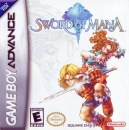| Fusioncode said: Sony did plenty to make the PS1 and PS2 a success. 1. Strong reach to 3rd partys, it made the PS1 a huge successs. Sony tried very hard to get as many 3rd party titles on the system as they could. 2. Marketing to a more adult audience. Before the Playstation came out, mostly just kids played videogames. All of a sudden teenagers and adults were playing it too. 3. Cheap price, Sony kept the PS1 cheaper than either of it's competitors. 4. Making the PS2 more of a multimedia console, now people who weren't even interested in gaming were buying PS2s simply for DVDs. You sound exactly like the gameoverthinker, saying Sony never knew what they were doing and became successful by accident. No, they did a lot of right and made plenty of innovative decisions. If they didn't know what they were doing the gaming would still be exclusive to nerdy kids sitting in their rooms. Just because Sony has made some very bad decisions recently doesn't mean they have NEVER understood gaming. |
1. Sony had no choice in this manner. They did not have any viable 1st party studios at the time (they bought out places like Psygnosis afterwards). And as stated, their success in this part was due to the poorness of the market leaders at the time, who had a stranglehold in third party development terms. It could hardly be called innovative.
2. Sega already did this. Because of Nintendo's strict policy on things such as nudity, religious symbols and sexual themes, it was once again the demands of third parties that Sony relax such regulations. Not innovative, and if it was, credit would be to the third parties...
3. From where I was, the N64 was cheaper than the PS1. The only problem was that it was released too late to compete (March 1997 in my area).
4. Nintendo were talking about convergence of home consoles with other media hardware in the days of the SNES, when Sony was making sound chips for them. The only difference is that Nintendo didn't have the leverage to appeal such a concept to the Audio and Motion Picture Industries. Sony did.
After the CD-i debacle however, Nintendo shifted policies, deciding to take a less liberal view towards hardware convergence and more towards holding on to their Intellectual Property.
Once again, the broader market appeal came not from Sony, but the ones who were able to innovate on a generation of hardware that offered things that appealed more to the mass market (such as 3D, and the ability to use Full motion video). That honour belongs to companies such as Capcom, Konami, Square, Namco, etc. The rest was stuff that Sony learned from Nintendo during development phase of the "Play Station" (the CD addon).




















